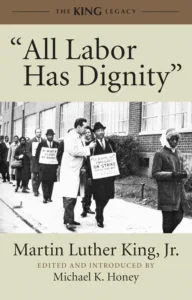TLDR
All lists of books on socialism are designed to help readers understand the philosophy, but each writer has a different agenda. Sometimes the owner of the media outlet wants people to fear all forms of socialism and believe they can only lead to fascism. Conversely, self-described socialist authors often want Americans to believe full-scale socialism or “democratic socialism” lies only within the Democratic Party and can be achieved in the near future.
As you might have already guessed, I, too, have an agenda with this list, and I’m going to disclose it upfront. I want you to read books written by people I regard as real socialists — not Democrats who call themselves socialists to differentiate their personal brand from self-described liberals and progressives, and not hardcore capitalists who purposely conflate the proposed socialism from people like Bernie Sanders vs. authoritarian socialism and communism.
How I Define Socialism and All Political Ideologies: Focus on Impact, Not Only Rhetoric
I have an unbiased method for judging whether someone is applying a political label to themselves in a logical, honest matter. My linguistic doctrine in a nutshell: We are what we vote for.
Political actions, not rhetoric, are the primary drivers of political impact. Voting is a key political action that decides political impact. When rhetoric and other political actions (protesting, boycotting, striking, etc.) are not aligned with voting choices, it’s easy for critics like me to lampoon flimsy political labels.
If you voted for and/or flacked for Joe Biden and Kamala Harris, the following political labels are appropriate for you: liberal, neoliberal, centrist, gradualist, Democrat, etc. If you first voted for a progressive primary candidate, “progressive” might be the most accurate word for you. You’re definitely not a socialist or a communist, and that’s fine. Most self-described socialists are people I consider progressive, a word that doesn’t even sound bad.
Actual socialists always vote for parties and candidates with socialist platforms. It’s not enough to vote for the arguably socialist candidate in a Democratic Party primary and then vote for the neoliberal primary victor in the general election.
Examples of Real vs. Fake Socialist Authors
Real socialists do not espouse neoliberal talking points such as Vote Blue No Matter Who and the lesser of two evils. This list will not feature authors like Bernie Sanders, Noam Chomsky and Angela Davis, who claim to be socialists but have urged people to vote for every neoliberal presidential candidate in recent history. You won’t see Nathan J. Robinson, who wrote a book about being a socialist and then went on the Bad Faith podcast to tell listeners they should settle for neoliberals.
During general elections in the U.S., there are several political parties that have socialist platforms and usually maintain some level of ballot access. Of these organizations, the Green Party has by far the most ballot access, but you might be able to vote for the Party for Socialism and Liberation as well. There have also been independent socialist candidates such as Kshama Sawant.
How I Made This List, and Why I’m the Best Person to Write It
To curate a list of books on socialism for readers who want authenticity and a fair evaluation, I connected with my comrades on the far left who meet the above socialist requirements. I asked these socialists for their book recommendations, and I filtered the selection through my analysis of the authors who wrote these books.
Contrary to what you’re likely thinking at this point, I don’t call myself a socialist, in part because of the famous fake socialists — Zohran Mamdani and Hasan Piker come to mind — who have co-opted the word. I vote the same way as many real socialists do, but I don’t think the socialism verbiage is conducive to efficiently expanding worker movements. I don’t have an emotional attachment to the diction or the concept. I prefer the “populism” language.
Nonetheless, I deeply respect self-described socialists who talk the talk and walk the walk. My attitude makes me the perfect person to build this list with a combination of open-mindedness and healthy detachment. I understand the difference between Scandinavian socialism and authoritarian socialism, and I can speak fairly about both.
6 Books on Socialism, Written by Real Socialists
I believe these six books cover foundational aspects of socialism such as definitions, labor and ideological roots. Some will surprise you; others are predictable but essential.
The list isn’t limited to nonfiction. Feel free to suggest fiction books that analyze different iterations of socialism with a relatively balanced perspective.
Fair labor is the foundation of socialism. In addition to being a civil rights activist for Black Americans, MLK was a socialist who advocated for worker rights. Edited by Michael K. Honey, this book is a collection of MLK’s speeches about labor and economic equality. Honey provides valuable context for the speeches, so we recommend reading the entire text.
We’ll never know exactly how MLK would vote in our modern era. We do know, however, that he was against the two-party system, centrism (being a “moderate”) and the lesser of two evils argument. In his famous “Letter from a Birmingham Jail,” King wrote:
“First, I must confess that over the past few years I have been gravely disappointed with the white moderate. I have almost reached the regrettable conclusion that the Negro’s great stumbling block in his stride toward freedom is not the White Citizen’s Counciler or the Ku Klux Klanner, but the white moderate, who is more devoted to ‘order’ than to justice; who prefers a negative peace which is the absence of tension to a positive peace which is the presence of justice; who constantly says: ‘I agree with you in the goal you seek, but I cannot agree with your methods of direct action’; who paternalistically believes he can set the timetable for another man’s freedom; who lives by a mythical concept of time and who constantly advises the Negro to wait for a ‘more convenient season.’ Shallow understanding from people of good will is more frustrating than absolute misunderstanding from people of ill will. Lukewarm acceptance is much more bewildering than outright rejection.”
Born in Canada to a Marxist family, Gerald Allan Cohen lectured on socialism at prestigious academic institutions such as Oxford. In this book, he argues that both socialism and selfishness are natural human behaviors. When creating an ideal society, the challenge is harnessing generosity and building guardrails for selfishness.
The book is very short, only around 100 pages. We recommend viewing it as a basic primer on socialism, a sort of foundational handbook. Cohen uses a simple analogy of a camping trip where one group embraces socialism while the other gives in to predatory capitalist instincts.
On Goodreads, many of the negative reviews are from self-described socialists who thought the book was too shallow. We think you’ll enjoy the book if you go into it with the right expectations.
3. ‘We’re Coming For You and Your Rotten System: How Socialists Beat Amazon and Upended Big-City Politics’
Labor organizer and journalist Jonathan Rosenblum chronicles the story of how socialist Kshama Sawant won a seat on the Seattle city council and secured a $15 minimum wage. I’m actually having trouble finding documentation where Rosenblum declares himself a socialist, but I’d be shocked if he wasn’t comfortable with this label. He worked for Sawant’s office, meaning he operated outside the two-party system. Because the book is new, we haven’t been able to observe a review pattern yet. Please let us know if you see updates!
Professor Richard D. Wolff has been a guest on many of the far left shows I watch on YouTube. If “Why Not Socialism” is the 101 course, this book is 102. Praised by Cornel West, “Understanding Socialism” acknowledges both the triumphs and failures of different types of socialism. At only 150 pages, you should breeze through it.
Continuing our inclusion of key Black American socialists and primary sources, Huey Newton was one of the founding members of the Black Panther Party. This book is a compendium of his essays and speeches.
One of the few titles I’ve seen maintain above a 4.4 rating on Goodreads, a top reviewer wrote: “Wow. Required reading for anyone who claims that an interest in socialism/communism is about listening to a bunch of white guys. Huey’s dedication to his Marxist-Leninist principles and also his ability to break down dialectics and the views of the BPP left me in awe after every essay.”
According to a statement from The Martin Luther King, Jr. Research and Education Institute within Stanford University, Paul Tillich was a “major influence” on King’s religious ideas. Both King and Tillich represent a longstanding relationship between Protestantism and socialism. Tillich’s grandson described him as a “religious socialist.”
Released in Germany right when the Nazis took power, the German regime immediately banned this book and condemned it to burn. The translation from German has made some readers feel the English text is difficult to understand. Even if you agree, this title is valuable as a historical document and unique combination of philosophies.
Be Careful of ‘Why Socialism Works’ — It’s Not a Real Book
While researching books on socialism, I encountered “Why Socialism Works” by Harrison Lievesley. If you have a genuine interest in learning about socialism, don’t buy this book! It’s a satirical book. All of the interior pages say “It Doesn’t” over and over again. Yes, that’s the entire 150-page+ book.
There are only three situations where it’s worth the money to buy this book:
- You hate socialism and want to give yourself a laugh, or perhaps share a fun joke with someone who hates socialism.
- You hate socialism, and you want to pull off a mean-spirited prank on someone who has an optimistic or curious attitude about socialism.
- Like me, you want to verify that it’s a satire/gag gift book.
I feel a responsibility to warn people about this book because it’s clear that many people — perhaps hundreds — bought it mistakenly believing it was an educational title. The Amazon page has more than 900 reviews and an average 4.4 star rating. The vast majority of these reviews are positive, and at first it’s difficult to realize the reviewers were also being satirical. These consumers wrote regular reviews as if the book actually contains insights on socialism.
Scroll down, however, and you’ll see this one-star review where 148 people found it helpful:
“I have just received this book that cost me $9.49.
It has a numbers of pages – 100? 200? with a simple phrase written in the middle of the page – It doesn’t.
What an intelligent way to make money – deceive the people who buy this book.
The book I have just received goes straight to the dustbin.
The author? has the audacity of including his photo on the back over.
As I titled this review it is a con that proves that there’s a sucker born every minute.
And I am the sucker.”
To be fair to the author of the book, the description on the Amazon page has this line: “Please note this book only contains two words and is entirely satire.”
Unfortunately you might not see this line when you load the page. It’s likely you’ll have to first unfurl the description text. For the people who bought the book expecting something genuine, it’s likely they would have halted the purchase if they had taken an extra second to unfurl that description.
I’d like to interview the author and see if they intended to fool and infuriate so many consumers. I don’t know if I’ll be able to track them down, though. “Harrison Lievesley” is probably a pseudonym.
Please let me know if you encounter other books like this. People with a curiosity about socialism shouldn’t lose money and get pranked just because they’re a bit click-happy.
Beyond the Obvious
I don’t have to tell you to read Marx, Lenin, etc. Other lists have done that. Instead please join me in curating a list of hidden gem books on socialism, written by real socialists. I’m sure there are more worthy titles out there, and I’d love to expand the list at least a bit.
Right now Republicans and Democrats are dominating the conversation. If we approach the topic with an independent mindset, we’ll be able to have authentic, productive conversations about what socialism is, whether the U.S. should embrace it and how.
Get the latest of The Rauch Review in your inbox, discover books you won’t see in stores, stay up to date on the “Rauching to Judgment” podcast and more.












